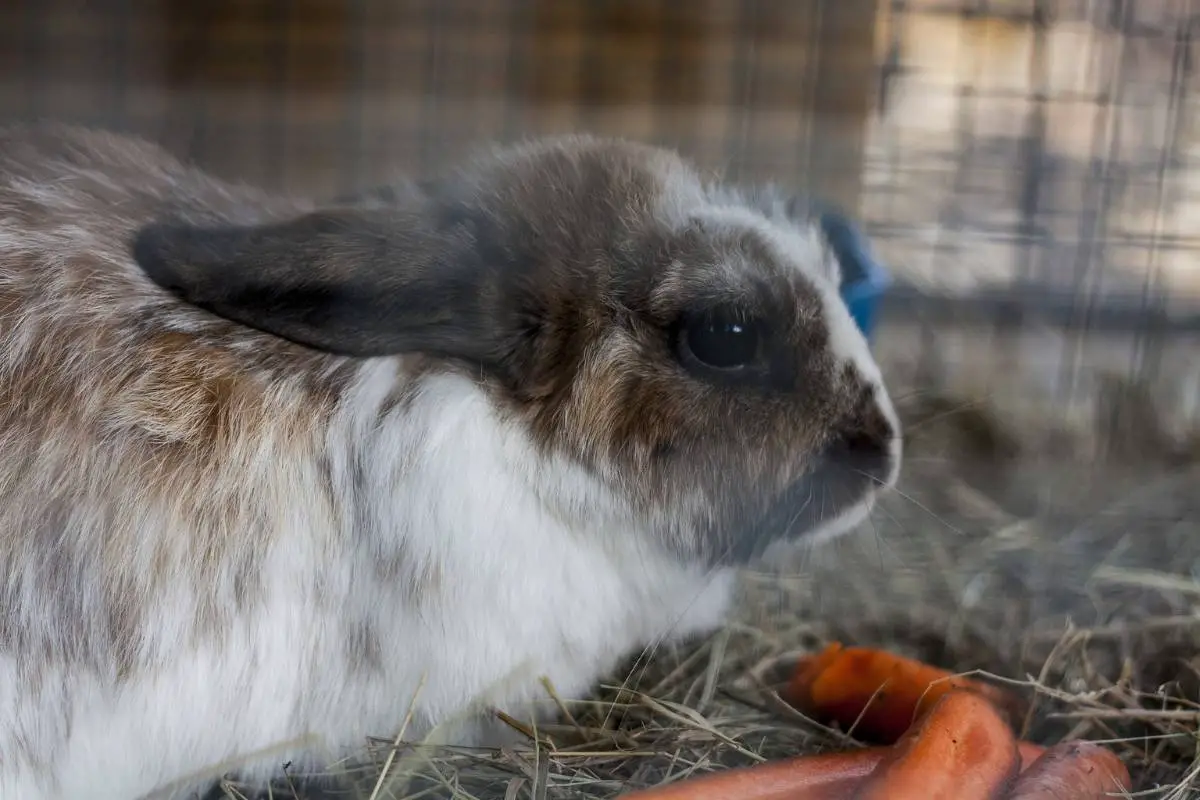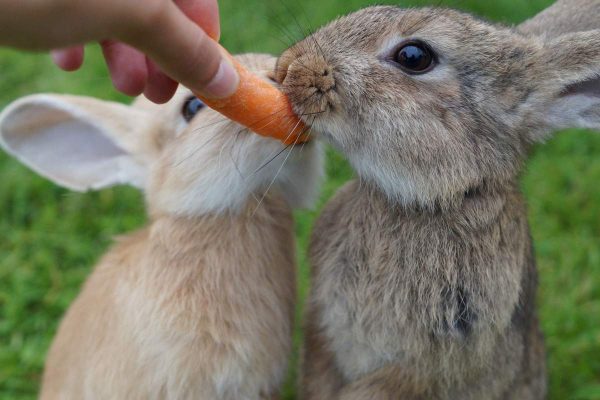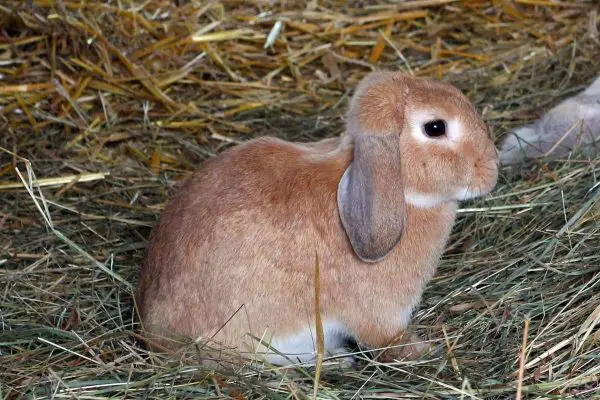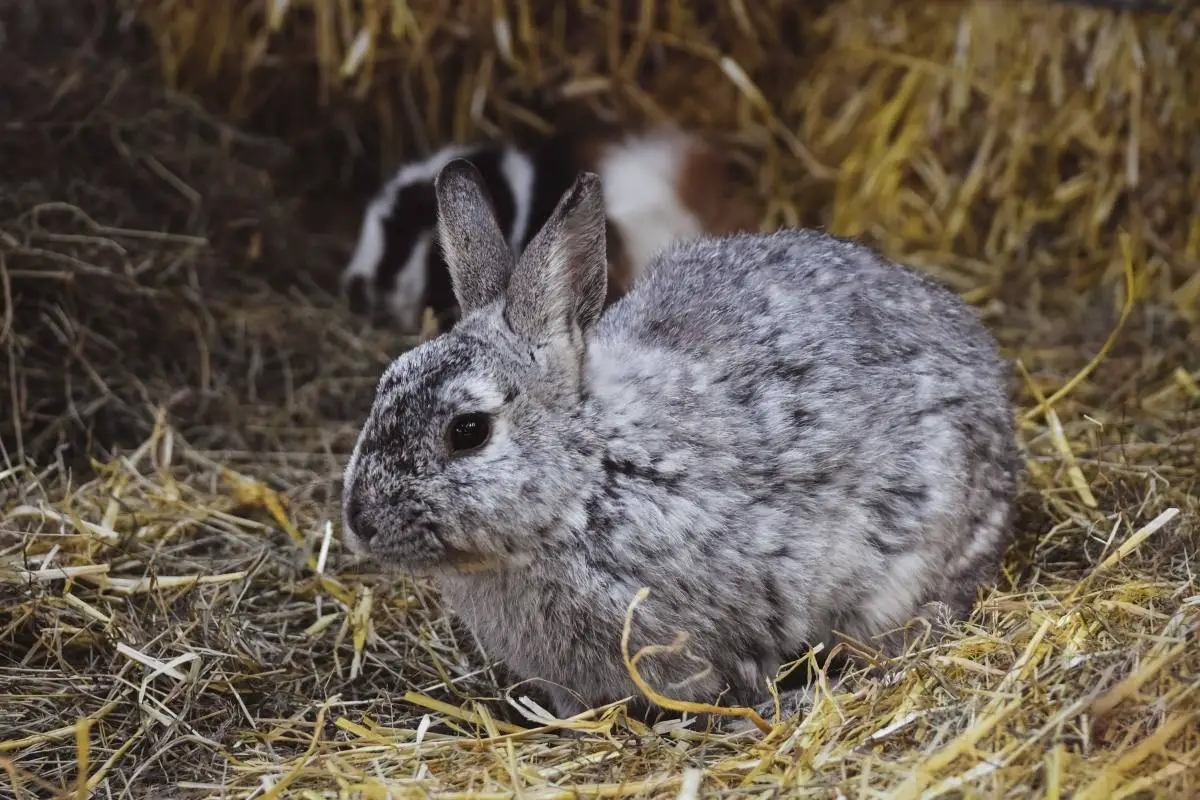If you have a rabbit or are thinking of getting one, making sure your rabbit is getting their needs met is important. And although rabbits are very social and affectionate creatures, there are a lot of things to think about before altering their lifestyle.
So, will my rabbit die without hay? Although rabbits can go without hay for years, having them go without it for that amount of time is not recommended due to the many benefits that eating hay can provide.
To understand your rabbit’s dietary needs, we’ll go over what hay provides for your rabbit, how often they need to eat it, and even what would happen if they don’t. Make sure to always check in with your vet to make sure you’re fulfilling your rabbit’s dietary needs. They’ll know their personal history more than we will, after all.
I Thought Rabbits Ate Carrots?

Contrary to popular belief, hay actually makes up 80-90% of their diet. In fact, carrots and other vegetables should be considered a treat as they’re high in sugar. A rabbit’s primary diet should only consist of hay, leafy greens, and a small amount of pellets.
Feeding your rabbit hay is the easiest way to give them their daily nutrients. Alongside that, hay also provides other benefits for your rabbit to keep them healthy, such as:
- Hay will keep your rabbit active when rearranging it to find the best piece
- The act of chewing hay grinds down their teeth to a safe, appropriate level
- Hay is very beneficial for their gut and prevents blockages
- It teaches your rabbit good litter tray habits
- Prevents many preventable diseases, such as GI Stasis
Lack of Dental Care for Rabbits
Unlike people, a rabbit’s teeth will continually grow if not maintained. Think of it like how people get haircuts, but a lot more dangerous if left wild. Hay or grass is the best way for your rabbit to grind down their teeth so they don’t grow painful abscesses. In fact, in some extreme cases, their teeth can even grow into their eyes from within their skull.
Although chewing on hay will keep their teeth at an appropriate size, you still want to make sure you keep an eye on their teeth and have regular check-ups. Their teeth can grow an additional 12 centimeters per year if you’re not paying attention.
Improper teeth care can also result in their teeth growing crooked or in impractical directions. And strangely enough, eye problems in rabbits are usually caused by their teeth.
How Does the Hay Help the Gut?
In order for rabbits to chew hay, they use their teeth and jaw simultaneously in a very interactive and ingrained way that aids with digestion in their day-to-day life. Hay is made up of long fibres that will help maintain the inner muscles of the gut.
What you should be most concerned about is potential blockages within the gut. Using this ingrained “mechanism”, rabbits continuously eat throughout the day using their teeth and jaw to work as a “machine” of sorts that keeps things moving along smoothly on the inside.
Eating hay throughout the day will also prevent diseases, such as GI Stasis. The “GI” in GI Stasis stands for “Gastrointestinal Stasis”, which refers to food not moving through the gut as quickly as it should.
If this persists, the food inside the gut will dehydrate and turn into a hard, immobile mass. Once that happens, blockage can easily occur and obstruct the digestive tract. Blockage can also cause gas pain for the rabbit as well as gas build-up.
There are other ways to prevent GI Stasis, such as evaluating your rabbit’s living space. Rabbits are prone to stress and do best when they live a happy, undisturbed life. They are also very social creatures and do well when they’re included in family life.
In addition to providing your rabbit with hay, do your best not to enact any major changes to their lifestyle. Lifestyle changes, such as the loss of a family member or even a large amount of visitors can cause extreme stress and potential issues with GI Stasis as well.
As for what you should look out for, here are the common signs:
- Your rabbit suddenly stops pooping
- Your rabbit suddenly stops eating
- Your rabbit seems uncomfortable/in pain
If any of those symptoms occur, take your rabbit to the vet immediately. You cannot treat GI Stasis on your own, unless you want to risk your rabbit’s condition worsening. It can be fatal and as soon as within 24 hours of these symptoms.
How Often and How Much Hay Should My Rabbit Eat?

It’s recommended to feed your rabbit hay that’s the same size as their body. This hay also needs to be from a fresh source, just like how their water should be replaced every day. Make sure that your rabbit has access to an unlimited amount of hay every day as well. But don’t worry about wasting; the stale/dirty hay can be added to the area where they pee for further use.
Water is just as important. Always make sure your rabbit has access to a clean, fresh supply of it so that the hay they chew on throughout the day doesn’t become dehydrated within their gut. To prevent this, make sure to set out a designated area of it where they munch on their hay every day so that it’s easily accessible.
As for how often your rabbit should eat, let them have an unlimited supply so they can snack throughout the entire day. Unlike cats and dogs, rabbits don’t need a designated meal time. You can set snack times for them but when it comes to hay, it’s best to let them munch on it throughout the course of the day.
How Do I Get My Rabbit to Eat More?
If you find that your rabbit is easily distracted by other things, there’s some steps you can take in order to get more hay in their system.
Some rabbits may become used to dry food and prefer it over hay. While dry food can be a great addition to their normal diet, it shouldn’t be their whole diet. You should try to cut down on their intake of dry food slowly over time, but not immediately. If your rabbit isn’t used to eating hay as their main source of food, lessening the amount of their food could be potentially dangerous.
It’s also possible that the hay you’re feeding them is either lower quality or not to their particular liking. After all, rabbits have 17,000 taste buds. There are so many types of hay on the market today that you should have a lot of options.
A good alternative to hay while you find a new source is letting them eat grass in your yard. Grass is similar enough to hay, but make sure that you start them off with small amounts. You should never completely switch over from food to another, as it could upset their stomach.
Also, never feed them cut grass from a lawnmower because it can turny mushy. Treated grass with harmful chemicals is also not recommended. Any grass fed to your rabbit shouldn’t be nearby any sort of fumes or chemicals. So if your yard is in a suburban neighborhood and needs to be maintained, it’s not recommended for your rabbit to switch to grass.
Another way you can get them to eat more hay is to introduce treats or food you know they like with the hay. This will encourage positive eating habits and also encourage them to associate hay with something that’s tasty.
Here are some other tips:
- Try stuffing hay inside toilet paper tubes to make it interactive
- Spray the hay with pineapple juice will make the hay taste sweet
- You could stuff their litter tray with hay as they like to eat while peeing
Do Rabbits Just Eat Hay?

Rabbits can also add leafy greens, pellets, and even fruits and vegetables to their diet. Hay should make up 80-90% of their food, however, and be given to them in unlimited amounts.
It’s recommended to feed an adult rabbit ¼ cup of pellets for every 6 pounds of body weight. Alongside that, you can feed your rabbit 2 cups of vegetables for every 6 pounds and about 1-2 ounces of fruit. Take note of what food your rabbit likes and keep at it. The most important thing is that your rabbit consumes a lot of hay to keep their gut healthy.
If you’re not sure if your rabbit’s diet is healthy, you can always schedule a check-up with your vet and ask them what they recommend. They know your rabbit’s personal medical history and quirks. The most important thing should be that your rabbit eats and likes their food.
Conclusion
Remember that hay does a lot more than just provide nutrients for your rabbit, but also keeps their organs healthy and their teeth at an appropriate length. Rabbits are very social and affectionate creatures, but they require a lot of care.
The answer to “Will my rabbit die without hay?” is complicated, as not every rabbit is the same. While technically rabbits could survive without hay for years, in most cases, not eating hay will give them preventable diseases or discomfort. It’s recommended to not have your rabbit go off of hay for too long.
If you take away anything from this article, we hope that you understand how important hay is to the average rabbit. Rabbits have completely different eating habits than other animals, especially in comparison to us. We might not fully understand it all the time, but it’s important that we stay educated on the habits of our pets to keep them nice and healthy.

